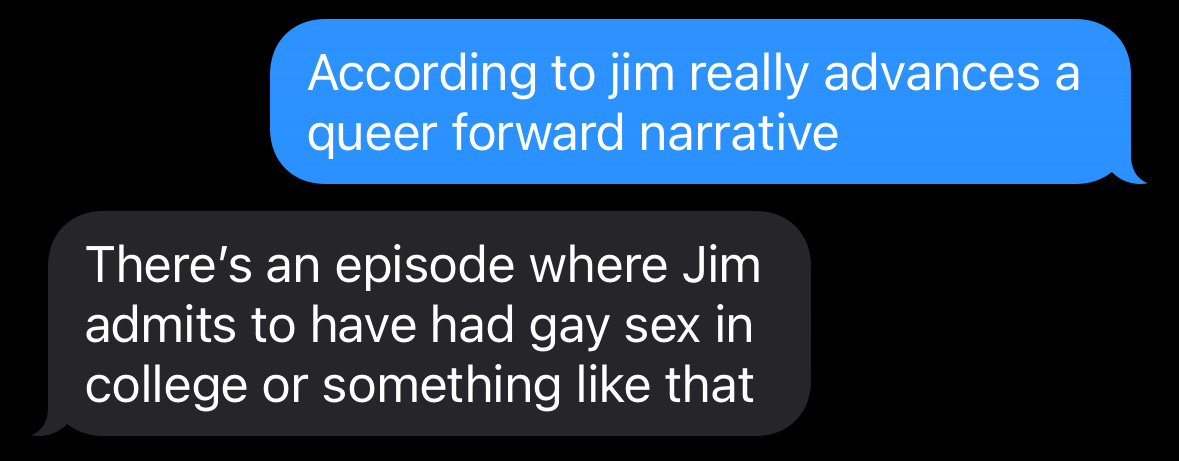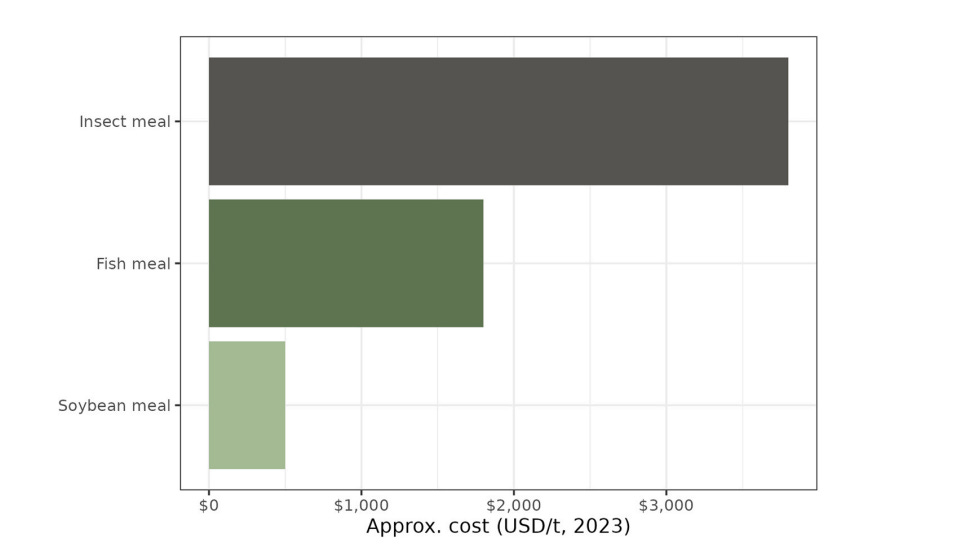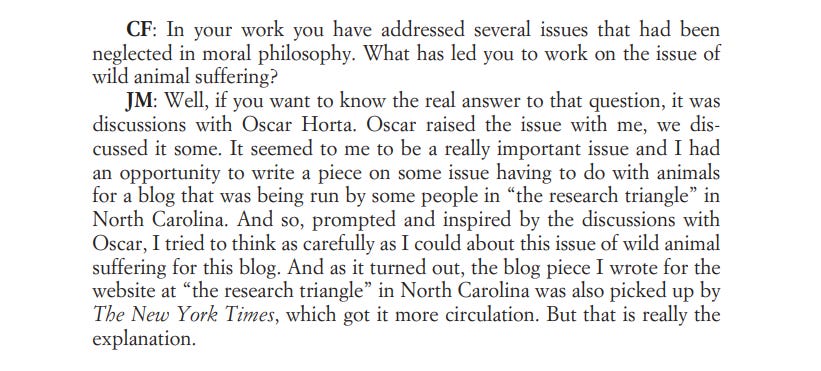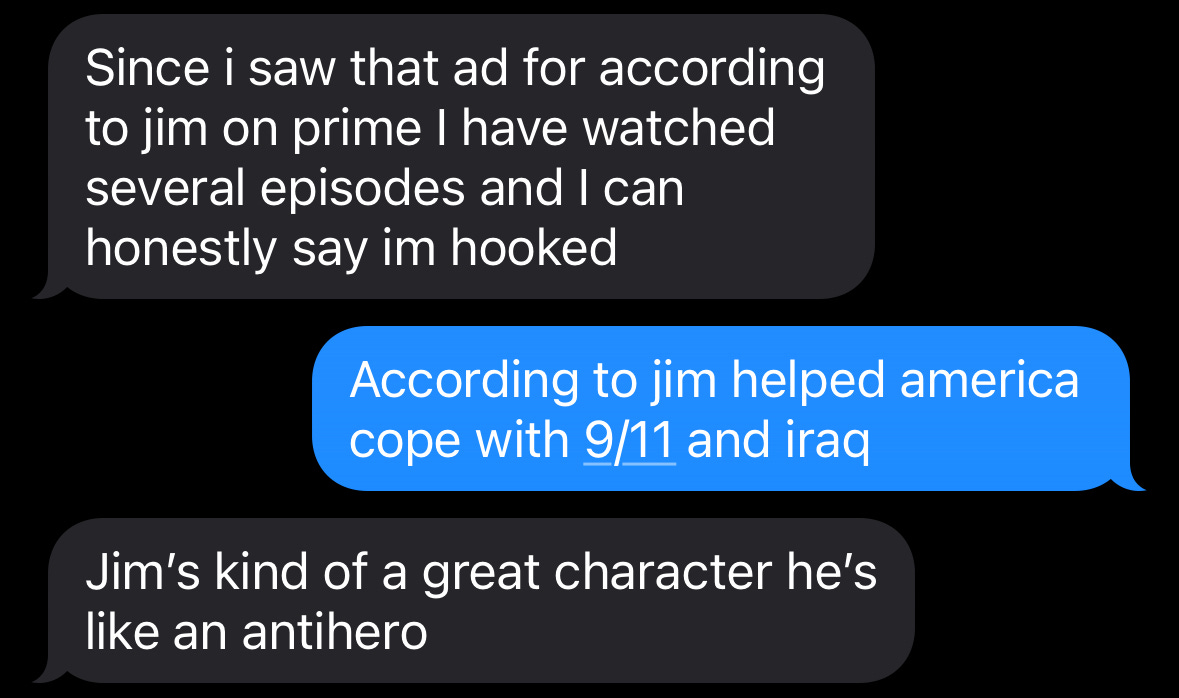Links for February 2025 (#2)
Insect liberation is on the horizon, the Bob Dylan movie sucks, and Jim Belushi is the comic genius of our age.
On Substack
1: Ozy Brennan published a great article on moral circle expansion that compares the average person’s level of concern for different moral objects to the level of concern of most effective altruists. Basically, the average person’s moral views coincide with whatever is most convenient to them at a particular moment. So, for no good reason, they say companion animals are more important than wild animals, wild animals are more important than farmed animals, and farmed animals are more important than pests. By contrast, EAs believe in equal consideration of interests without regard to species or other arbitrary group membership. They also don’t believe in moral desert:
[S]ome effective altruist once wrote that, if she had the option to give Hitler a nice dream — immediately before he died of suicide so it couldn’t strengthen him to commit more atrocities, and secretly so no one would be incentivized to commit the Holocaust — she would. Because she thinks it is good, all things equal, for Hitler to be happy.
I don’t disagree with this, but I think it raises an interesting question for EAs who believe in an afterlife. Someone who has the power to give Hitler a good dream seems to be in an analogous position to God. If no living person can know their own eternal fate or anybody else’s until after they have died, then why wouldn’t a perfect God tell everyone there are stringent requirements to get into heaven, but then let everyone in anyway? In other words, what reason do we have to believe Hitler isn’t in heaven?1
2: Bentham’s Bulldog grapples with three common errors in people’s thinking: closed-mindedness, scope insensitivity, and tribalism. You might think professional philosophers don’t fall prey to closed-mindedness, but that’s not true:
People often criticize philosophers on the grounds that they’re so open minded that their brains fall out. I think this is opposite the truth; philosophers are too unwilling to accept arguments with weird conclusions. […] In my view, this is because philosophers cling far too dogmatically to their initial intuitions. They’re too unwilling to update their starting intuitions when they conflict with other, more robust intuitions.
I think this is exactly right. According to the 2020 PhilPapers Survey, only 29% of applied ethicists say it is morally impermissible for people to consume animal products in ordinary circumstances, while 28% say it is permissible to consume animal products but not animal flesh, and 36% say it is permissible to consume either. This is despite there being virtually no good defenses of consuming factory-farmed animal products in the literature (and “ordinary circumstances” means factory farming). If philosophers were anti-dogmatic, most of them would be vegan. If they’re simply less dogmatic than the general public, these results make sense. If you want an indication of the “correct” philosophical view on a controversial topic, you should probably look at what direction philosophers lean relative to the general public (controlling for the relevant demographics) rather than the simple descriptive statistics of what they believe.
3: Andrew Doris puts voice to exactly what I’ve been thinking about Obama-era conservatism’s evolution into the Trump movement:
Turned out, most Republicans (and maybe half of libertarians) didn’t really take to our lofty principles. What fired them up was crass nativism. They said they valued small government, but they cheered bigger government on immigration, crime, abortion, trade, torture, drone strikes, and war crimes. They said they valued the constitution, but loved the guy who ran roughshod over it. They said they valued liberty; but the particular liberty they seemed to care most about was the social permission to be cruel and callous without being made to feel bad about it.
I’ve alluded to this a lot in the past, writing that conservative ideology doesn’t matter anymore, the Republican Party is like a school that only teaches bad things about Jews (just swap out Jews for foreigners), and paleo-libertarianism is anti-libertarian and low human capital. In fact, I think you can say every single putatively small government populist movement in the United States since the Great Society — the Reagan Revolution, the Buchanan Brigades, Ross Perot and the Reform Party, Newt Gingrich’s Contract with America, the Tea Party, and now Trump and DOGE — has been primarily motivated by racism or xenophobia rather than a genuine desire to shrink government.
Reagan introduced America to the “welfare queen” trope during his 1976 presidential campaign, but once elected he rebuffed his budget director David Stockman’s efforts to reform welfare programs primarily used by white people, ruling out any cuts to Social Security, Medicare, veterans’ benefits, or disability.
Buchanan vowed to balance the budget by abolishing foreign aid and withdrawing U.S. troops from Europe and Asia, but fastidiously opposed cuts to Social Security and Medicare.
Perot and Gingrich are harder to prove, since they actually did support concrete proposals that would have cut the deficit. But my impression is that their supporters — especially Perot’s — were mainly motivated by nativist, nationalist, and culture war issues.
At the height of the Tea Party movement in 2011, the only parts of government a majority of Republicans wanted to shrink were foreign aid and funding for the arts and sciences, which made up 2% of the budget. Even the libertarian purist Ron Paul vowed to do nothing about Social Security and Medicare and “[honor] our promise to our seniors and veterans.”
And of course, Trump has let DOGE loose on USAID (1% of the budget) while promising not to touch Social Security, Medicare, and veterans’ benefits (42% of the budget) and pledging his support for the House budget plan that would increase the deficit by at least $2.8 trillion.
Most Americans think federal spending should be cut in the abstract. But when you ask them about any specific program, they’ll usually tell you it’s too important to cut. When you frame things in general terms and invoke words like “spending” and “the budget,” the foremost stimulus it brings to people’s minds is the government, which most people have negative feelings about.2 If you ask people whether they think spending should be cut “on Social Security” or “on Medicare,” they think about grandmas eating cat food and getting thrown off cliffs (an actual attack ad from the 2012 election) and they start to get uneasy about it.
Populist movements overcome this cognitive dissonance by pretending the main drivers of federal spending are all the things they don’t like. Leftists don’t like rich people or war, so they think we could pay for Medicare for All ($3 trillion per year) and the Green New Deal ($6.6 trillion per year) by cutting military spending ($900 billion per year) and raising taxes on the wealthy ($2.3 trillion per year). What does it say about the right that for at least half a century, they’ve been telling themselves the main drivers of federal spending are foreign aid, immigrants, “waste, fraud, and abuse,” and — if you go back far enough — black single moms on welfare?
4: Friend of the blog Aidan Alexander and his colleague Thom Norman are starting a podcast called “Changed My Mind” (find it on Apple Podcasts and Spotify). According to the description, “each episode features accomplished thinkers sharing pivotal moments when they changed their mind about something important.” The first episodes, set to drop in May, will feature Rutger Bregman and Peter Singer.
5: The U.K. government is currently consulting on whether to allow insects to be used in feed for farmed pigs and chickens. It says this would “enable investment in the insect protein sector [and] open new markets for renderers.” It would also result in an extraordinary amount of insect suffering in expectation. Amos Wollen encourages readers to take 5 minutes to fill out the consultation form to discourage the government from allowing this to happen. You don’t have to be a U.K. citizen to complete the form, and if you don’t have 5 minutes to spare, you can use the U.K. Voters for Animals GPT to write your responses for you. For more details, see the EA Forum post by James Özden.
Having a Backbone for Those with No Backbone
6: Months ago, when Amos was a very failed Substacker, he wrote an article titled “they’re eating the bugs” about insect farming and how to stop it. I think it’s a good explainer for insect welfare issues, but it’s too pessimistic about the prospects for Insect Liberation in our lifetime. Amos adopts a bottom-up theory of change and assumes we need to educate common people about abstract moral principles in order to prevent insect farming from becoming widespread. But this is futile and unnecessary: The future of insect farming will most likely be determined by top-down movements and structural economic factors, and these are much more auspicious to insect welfare than the attitude of the average person. Even though there is no grassroots insect welfare movement today, the industry is already in crisis. Insect-based livestock feeds are simply too expensive to be economically viable, and the industry competes for scarce resources against other more powerful animal agriculture industries.
7: Contra Amos, I’m very excited about the momentum behind the invertebrate welfare movement. To my knowledge, these are just some of the most significant wins for invertebrate welfare over the past year, almost all of them top-down or structural:
Last April, at least 500 academics and experts signed the New York Declaration on Animal Sentience, which states that:
the empirical evidence indicates at least a realistic possibility of conscious experience in […] many invertebrates (including, at minimum, cephalopod mollusks, decapod crustaceans, and insects).
In May, one of the leading animal advocacy conferences held a first-ever (to my knowledge) panel on insects and crustaceans, featuring a speaker from the Society for the Protection of Insects. (I brought up insect welfare in about a dozen conversations at the conference and most people seemed to agree that stopping insect farming should be a top priority, including many non-EAs.)
Also in May, Mercy for Animals launched a shrimp welfare campaign and held the world’s first-ever shrimp welfare protest at a Tesco store in London. (Tesco is Britain’s largest retailer.) Over 70 people attended, and less than three months later, Tesco announced a new shrimp welfare policy banning eyestalk ablation and ice slurry for the 5 billion shrimp in its annual supply chain. Since then, Sainsbury’s and Waitrose have also adopted a shrimp welfare policy.
The professional animal advocacy podcast How I Learned to Love Shrimp talked to Bob Fischer about insect advocacy, and 80,000 Hours hosted Meghan Barrett of the Insect Welfare Research Society for a nearly four-hour discussion about insect sentience. Last month, the New Yorker published an article on insect sentience that elevated the issue from philosophy and animal advocacy circles to a new mainstream audience.
In June, Rethink Priorities launched the Arthropoda Foundation, a fund for insect welfare research.
The Insect Institute published two peer-reviewed papers casting doubt on the viability of insect farming, and Dustin Crummett published letters in The Guardian and New Scientist.
Washington and California passed bills banning octopus farming. In July, U.S. Senator Sheldon Whitehouse of Rhode Island introduced a bill to ban octopus farming nationwide after reading a news story about Compassion in World Farming’s anti-octopus farming campaign. The Animal Rights Initiative, which helped pass the law in Washington, has since gotten bills introduced in New Jersey, Hawaii, Connecticut, and Oregon.
In November, a ragtag group of Substackers raised at least $15,000 for the Shrimp Welfare Project (nearly 2% of its 2024 budget) and SWP placed a close third in the EA Forum’s donation election.
In December, a Rethink Priorities report pointed to declining investment and falling estimates of potential production capacity in the insect farming industry. The world’s largest insect farming company, Ÿnsect, is also teetering on the verge of bankruptcy.
8: Someone — I don’t remember who — made this spreadsheet of organizations working on invertebrate welfare. I recommend checking out Animal Ethics for its extensive website content on invertebrates and wild animals. Co-founder Oscar Horta is among the philosophical pioneers of wild animal welfare and the author of such bangers as “Debunking the Idyllic View of Natural Processes: Population Dynamics and Suffering in the Wild” (196 citations). He apparently also inspired Jeff McMahan’s 2010 New York Times op-ed on intervening in nature, “The Meat Eaters.”
9: Last summer, due to some roommates I never talked to before or since, I had a fruit fly infestation in my apartment. I didn’t want to kill them — the fruit flies, not the roommates — and for some reason my non-lethal apple cider vinegar traps didn’t work. So, I just ended up shooing them into the hallway. I don’t know if this was better than killing them, since they may have all starved to death instead of being crushed by a fly swatter instantly. But I also give non-zero credence to the idea that killing is inherently worse than letting die. If you’re disappointed by this story and you want more definitive advice on how to treat insects, see Brian Tomasik’s essay “The Importance of Insect Suffering.”
Dialogues on Ethical Shrimp Welfarism
10: Shrimp Welfare Project co-founder Andrés Jiménez Zorrilla writes: “Yes, Shrimp Matter.” Lyman Stone says: “Nobody Cares About Shrimp.” He ran a survey and found:
The idea that the value of shrimp lives is essentially zero, that 1,000,000 shrimp lives are worth no more than an ephemeral scenic view is, is nearly-universal.
11: Theodore Yohalem Shouse replies, “Shrimp Matter,” and finds Lyman’s argument unconvincing:
I’m not really surprised people don’t care that much about shrimp. Shrimp are weird. They’re small. They look different. Their lives are completely alien to us. It’s extremely difficult to intellectually empathize with them. But does that mean that “you can kill millions of them however you want and it’s fine,” as Lyman implies? No, it does not. If you accept this, you must also accept that sexism was OK in the past because most people were sexist.
12: Lyman says there’s a key difference between sexist and anti-shrimpist discrimination, since “there is literally zero evidence of shrimp sentience. None at all. […] Anyone claiming we have evidence of shrimp sentience did too much ayahuasca.”
But this is wrong. Returning to Zorrilla’s essay:
A comprehensive review commissioned by the U.K. government found strong evidence of sentience in decapods, which includes shrimp, lobsters, prawns, and crabs. Evidence was particularly strong in true crabs. […] While shrimp have been studied less extensively, the evidence suggests that they have similar capabilities. The fundamental neural architecture [they] have in common with other animals includes pain receptors, nerve centers capable of integrating information from different sensory sources, and molecular machinery for detecting noxious stimuli.
The Welfare Range Table, a comprehensive assessment of animal capacities, reveals that shrimp display numerous sophisticated behaviors: they can learn from experience and show anxiety-like states when threatened; when injured, they display targeted grooming behavior (basically, tending to the injury) that can be reduced by local anaesthetic, suggesting conscious pain response rather than mere reflex; and their nervous systems show a striking level of complexity, with clear evidence of integrative processing centers that could support conscious experience.
Shrimp’s nervous system, behavior, and estimated welfare capacity all point toward meaningful sentience. The fact that they haven’t been studied as extensively as some other animals should not blind us to the evidence we do have, nor to their evident similarities with better-studied relatives.
Bob Dylan, Ayn Rand, Lady Gaga, 9/11, and Me
13: According to statsforspotify.com, these are my top tracks for the past four weeks, six months, and twelve months.
(Why yes, I am between the ages of 18 and 29, white, and gay. How did you guess?)
14: I’ve been listening to Dylan a lot ever since I watched the new biopic, A Complete Unknown. As I explained in a paywalled post a month ago, I consider it the worst new movie of 2024, by far:
What’s always been most admirable about Dylan is his Ayn Randian selfishness and radical non-conformity. Going electric wasn’t just a “fuck the fans” moment; it was an awe-inspiring triumph of individual willpower over the ass-backwards, anti-progress mystical mediocre mob. I’m sure that if Rand was aware of Dylan, she hated him for his early left-wing activism and eventual moral detachment and conversion to Christianity. But there are few figures in the American public imagination who better resemble Howard Roark, few cultural heroes in the American Valhalla whose mythos better captures the essence of Randian philosophy, than Dylan.
I say this about Dylan’s “mythos,” and not the man himself, because no one is impervious to conformity like a Randian hero. After performing his electric set at Newport to jeers from the audience, Dylan relented and returned onstage to play “Tambourine Man” and “Baby Blue” in an acoustic encore. We righteously forget the last part so we can imagine him as an uncomplicated individualist and an icon of American iconoclasm.
We ought to make media we can aspire to, even if it involves papering over some inconvenient historical moments. The greatest offense of the Dylan movie is not that it is cinematically poor — although it is. Its greatest offense is that it betrays the myth of Dylan the Randian hero. Near the end of the film, at Newport, after Chalamet’s Dylan performs his electric set to the ire of the audience and prepares to leave the festival, he receives a knowing glance from Johnny Cash and returns onstage to play “Baby Blue.” In so doing, he renders the entire narrative of the film incoherent and begins to tear away at the foundation of so much of modern American individualism that’s inspired by Dylan. Neither the mythical Dylan, nor Roark, would ever do such a thing.
15: I finally broke down and listened to the new Gaga. “Abracadabra” just sounds like somebody ran her discography through an AI and asked it to make it worse. “Die With A Smile” is tolerable, but that’s probably because Bruno Mars does most of the vocals. To my surprise, I like “Disease” and think it’s very good.
16: I wrote the above paragraph immediately after listening to the songs. A day later, “Abracadabra” and “Disease” sound the same to me. They’re both okay.
17: My number-three track over the past four weeks, “St. Patrick Battalion,” by anarchist folk punk artist David Rovics, tells the story of the San Patricios, a foreign legion of Irish immigrants to the United States who fought for Mexico in the Mexican-American War. The San Patricios are treated as national heroes in Mexico and celebrated every year on Saint Patrick’s Day.
18: Rovics is also the author of my second-favorite 9/11 conspiracy theorist song, “Reichstag Fire.” It is only slightly inferior to my favorite, “Bin Laden” by Immortal Technique, Mos Def, and DJ Green Lantern. I think the 9/11 official narrative is correct and 9/11 conspiracy theories are idiotic, but hip hop performs a vital social function when it provides an outlet for subversion to authoritarian institutions, something that was sorely lacking in the early 2000s. As Van Jackson puts it:
Hip-hop had always been the music of the oppressed, bearing witness to the parts of the American story that were too incongruous for polite society to acknowledge. In the ‘90s though, the genre gradually hollowed out its spiritual radicalism as dissent music in favor of greed-is-good individualism. Don’t hate the player, hate the game. Can’t knock the hustle. All of that.
The neoliberal evolution of hip-hop before 9/11 defanged its critique of power, drew attention away from injustice. […] That meant rappers were largely freed from the possibility of contradiction when 9/11 struck. In a previous era, it would’ve been criminal to side with the state, especially one waging global war. Now it was the surest path to mainstream acceptance.
Five Notes on the Lesser Belushi
19: One of my friends has recently become obsessed with the ABC sitcom According to Jim, which aired from 2001 to 2009 and starred John Belushi’s inferior brother Jim. Like many sitcoms of the era, it existed mainly to inflate the male lead’s ego and make the network an ungodly amount of money in syndication. Every episode is basically the same: Belushi’s wife asks him to do a simple household task, then he doesn’t do it, does something stupid and narcissistic instead, his wife finds out, he blames her for trusting him, and he doesn’t face any consequences for his actions. The writers originally wanted Jim to apologize at the end of the pilot, but he made them take it out of the script:
“The original script called for Jim to go to the wife and apologize,” he recalls. “I said to the writers ‘Why do we have to do a show where the guy is going to apologize at the end of every episode? Was he really wrong? He’s contrite, sure. But isn’t he just being a man?’”
Somehow, According to Jim lasted 182 episodes and the first four seasons had an average of 10 million viewers per episode. In total, television viewers spent at least 80,000 years — about 1,000 lifetimes — watching According to Jim, not counting reruns.

20: Television critic Caryn James reviewed the According to Jim pilot for the New York Times in October 2001:
Somehow Jim Belushi has made a career out of playing lovable lunks, even though no one finds his lunky characters lovable. The mystery continues with “According to Jim,” among the season’s worst new shows. With Mr. Belushi as a suburban dad and Courtney Thorne-Smith as his soccer-mom wife, the sitcom grabs every stereotype in its reach. “I didn't know if you wanted me to do the dishes or not,” Dad tells Mom. “So I didn’t.” The series tries to latch onto the success of the show it follows, Damon Wayans’s funny family comedy, “My Wife and Kids,” but with a natural, up-to-the-minute feel, the Wayans show has and all the humor “Jim” doesn’t.
21: There’s apparently an According to Jim subreddit that has 71 members. Recent posts include holiday-themed clips from the show, a discussion of According to Jim DVD prices, and a glowing review that says:
Today, I finished watching the entire series, eight full seasons of According to Jim! It was an outstanding sitcom, and I rated it 9/10 on IMDb. The humor throughout was fantastic, and Jim and Andy often had me laughing out loud. […] One of the most enjoyable aspects of According to Jim was watching the characters grow over the years. Cheryl and Jim’s children, particularly Ruby, had wonderful arcs as they matured. Ruby’s teenage rebellions were especially entertaining, and I wish the show had explored more episodes focusing on her adolescence. Watching the family dynamic evolve over eight seasons was heartwarming and added depth to the comedy.
The first-ever post on the subreddit is titled “I just watched the entire show,” and reads: “I like watching bad things. I heard this was terrible. This was the worst thing I’ve ever seen.” In the most recent thread, user “Retirednypd” asks for help identifying a “hysterical” episode in which a character falls out of a dining room chair on purpose. After the user was directed to the correct episode, he confirmed that it was, in fact, “Funny shit.”
22: Some viewers have drawn comparisons between According to Jim and Kevin Can F**k Himself, a dark comedy series that critiques formulaic sitcom misogyny by alternating between traditional multi-camera shots that focus on the husband’s hijinks and dramatic single-camera scenes in which the wife has to deal with the consequences of her husband’s actions. One Redditor says: “Jim is truly the biggest POS of a sitcom husband I’ve ever seen.”
But the folks over at r/sitcoms are more magnanimous:
23: Belushi’s band, “Jim Belushi & The Sacred Hearts,” apparently wrote the theme song to According to Jim. They have 1,874 monthly listeners on Spotify.
News from Lake Wobegon
24: I recently learned that Garrison Keillor has a Substack. Actually, he has three Substacks: Two-and-a-half of them appear to be reprints of old columns and radio transcripts, while the other half-Substack consists of new columns he’s still cranking out at age 82.
25: If you’re woebegottenly unaware of Keillor and his radio program, A Prairie Home Companion (probably because you’re not from the Great State of Minnesota), I’ll spare you the embarrassment of having to ask. Check out this playlist of “News from Lake Wobegon” segments from 1982 and this Simpsons parody from 1993.
26: The real-life analogue of Lake Wobegon is Holdingford, Minnesota, which Keillor has described as “most Wobegonic.” Holdingford’s claim to fame is that it is home to the longest covered bridge in Minnesota, at 186 feet in length. It is also the starting point of the annual Lake Wobegon Trail Marathon, which has approximately half as many participants each year as the total population of Holdingford.
27: All fictional Minnesota cities are, of course, above average. But some are more above average than others. St. Olaf, the hometown of Betty White’s character in The Golden Girls, is based on a real Minnesota township whose 36 square miles contain some 476 people, at least two churches, a town hall, and according to the Otter Tail County Historical Society, “some thirty odd lakes […] but only seven worthy of mention.” Having visited there last summer, I am duty-bound to inform you that there is no such thing as a herring circus.
ChatGPT informs me this is called the “problem of hell.”
Willim G. Jacoby, “Issue Framing and Public Opinion on Government Spending,” American Journal of Political Science 44, no. 4 (October 2000): 751.











“In other words, what reason do we have to believe Hitler isn’t in heaven?”
Assuming non-retributivism, you might think that — to be able to enjoy heaven properly — you need the right kind of character. (Too much divine love and goodness would be unsettling, shame-inducing, and irritating to an extremely bad person.) As a result, you might think that Hitler would start out in purgatory: a state where you reform your character and give up all your sinful habits before you join the heavenly community. Presumably, for Hitler, that would take a very long time.
I filled out the form because of this article.